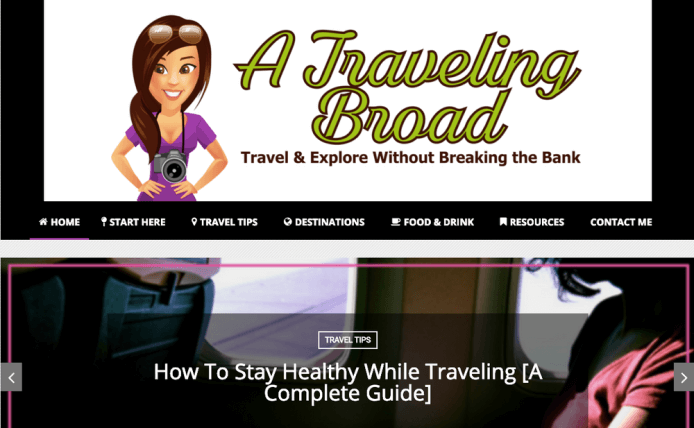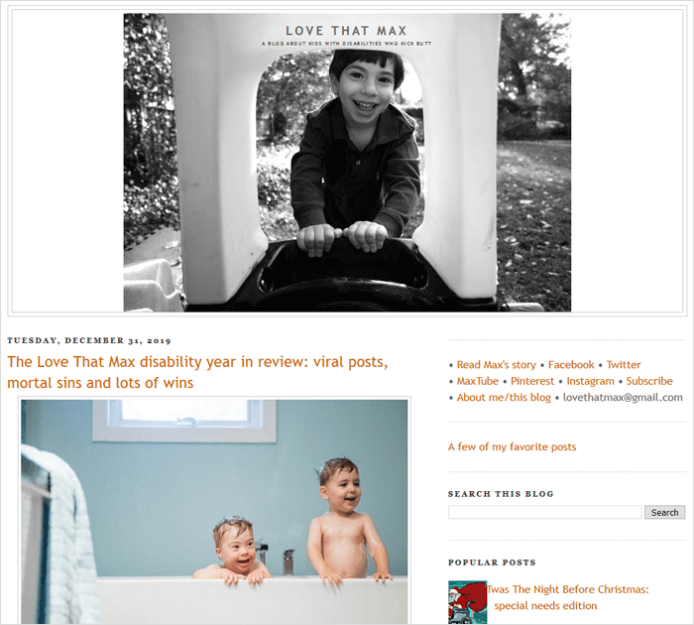Have you been wanting to start a blog but aren’t sure what kind of blog you’d like to run? Do you know how many types of blogs there are out there? Blogs have as much range as their creators.
There are different types of blogs and there is a different growth strategy and monetization for each type.
That’s why you have to determine the type of your blog according to your goals and plans.
In this article, I’ll cover everything you need to know!
1. Niche Expert Blog
What Is a Niche Expert Blog?
Niche blogs, often termed “niche websites,” cater to specific demographics, industries, or geographic regions. Some argue that every blog has a niche aspect, but in marketing contexts, the term refers to blogs with a focused audience or subject matter.
It meets the requirements of a distinct audience seeking particular subjects, leading to better rankings in searches related to those topics. These blogs face competition due to their focus on specific interests and demographics, but individuals who demonstrate their expertise can sustain a livelihood through blogging.
Among niche blogs, food blogs stand out as the most popular category, comprising 42% of the niche blogs with the highest traffic. This dominance underscores the widespread appeal and avid interest in culinary content among online audiences, making food blogging a highly sought-after niche.
Topics You Can Write About
Niche expert blogs can cover a wide range of topics, catering to specific interests or industries. Here are some potential topics for niche expert blogs:
- Health and Wellness: Specialized topics such as holistic nutrition, mindful eating, fitness for specific demographics (e.g. seniors, pregnant women), or alternative medicine practices like acupuncture or Ayurveda.
- Technology: Niche areas could include cybersecurity, software development, artificial intelligence, blockchain, or specific hardware like drones or wearable tech.
- Travel: Specialized travel blogs focusing on solo travel, budget travel, luxury travel, adventure travel, or traveling with pets.
The possibilities for niche expert blogs are endless, depending on your interests, expertise, and the needs of your target audience.
Expert opinion
“If you want to grow your email list: Go for niche blogs with an engaged audience (+10 comments on every guest post). Generally, a more engaged audience converts better into subscribers.”

Neil Patel
Co-Founder @ NP Digital
Example of a Niche Expert Blog

TravelingBroad serves as an excellent example of a successful blog within the Budget Travel niche. Amy Stark has built a continually expanding resource through her consistent blogging efforts.
She even offers a 7-Day Adventure Awaits Email Challenge, providing a helpful starting point for those looking to embark on budget-friendly travel adventures.
2. Informative Blog
What Is an Informative Blog?
An informative blog aims to engage the reader and encourage them to stay on the page, ideally enticing them to read the entire article. When individuals search for specific keywords on Google, they are seeking answers. Although they may not find the exact answer immediately, they are likely to persist in their search until they do.
Informative blogs can serve various purposes, such as sharing expertise on specific subjects, offering practical advice, discussing current events, or providing insights into niche interests. The content of informative blogs typically includes articles, guides, tutorials, reviews, opinion pieces, and sometimes multimedia elements like videos or infographics. Consistently writing informative blogs for three months can boost up to 60% of website traffic.
Topics You Can Write About
Informative blogs can cover an extensive range of topics across various fields and interests. Here are some broad categories along with potential topics within each:
Technology and Innovation:
- Latest tech trends and innovations
- Product reviews and comparisons
- How-to guides for using software or gadgets
- Cybersecurity tips and online privacy protection
- Future tech predictions and emerging technologies
Education and Learning:
- Study tips and effective learning strategies
- Career guidance and professional development advice
- Educational resources and online course reviews
- Exam preparation techniques and test-taking strategies
- Lifelong learning and personal growth insights
Environment and Sustainability:
- Climate change awareness and environmental issues
- Sustainable living practices and eco-friendly tips
- Renewable energy solutions and conservation efforts
- Plastic pollution reduction strategies
- Wildlife conservation and habitat preservation initiatives
These are just a few examples, and the possibilities for informative blog topics are virtually endless, depending on your interests, expertise, and the needs of your target audience.
Example of an Informative Blog

HowStuffWorks is an educational blog that delves into a myriad of topics in a fun and digestible manner. Part of the Stuff family of websites, it covers everything from scientific phenomena like “The Coldest Place on Earth” to innovative concepts such as “Biophilic Design” and even quirky experiments like “How to Make Elephant Toothpaste.”
By providing readers with accessible explanations and captivating content, HowStuffWorks serves as a valuable resource for those eager to understand the world around them in an enjoyable and enlightening way.
3. Personal Blog
What Is a Personal Blog?
A personal blog functions as an internet space where individuals express their thoughts, experiences, interests, and hobbies. It functions akin to a digital diary or commentary, typically adopting a conversational and casual tone.
Whether you possess extensive writing expertise or none at all, numerous personal blogs are managed by individuals who merely wish to express their thoughts to a broader audience. Personal blogs, renowned for their diversity of captivating blog post examples, reign as the most popular among readers, followed by business and technology, and then fashion, food, fitness, and health blogs.
Topics You Can Write About
If you’re considering launching a personal blog, but you’re unsure about what topics to cover, here are some suggestions to get you started:
- Occupation: Whether you’re feeling frustrated with your job or passionate about your work, blogging can be a valuable outlet. If you’re discontent, venting on a blog can provide relief, and sharing your ideas might lead to new opportunities. Conversely, if you love your work, blogging allows you to extend your enthusiasm beyond the office or job site.
- A Subject You Wish to Explore: You don’t need to be an expert to start a blog about a topic. It’s intriguing to see how many individuals are launching blogs, video series, or podcasts on subjects they’re eager to learn or master.
- Interpersonal Connections: This spectrum encompasses various types of relationships, whether it’s with a significant other, immediate family, extended family, work colleagues, or friends. Relationships are universal experiences for all humans, offering a broad audience for your new personal blog.
Example of a Personal Blog

Ellen Seidman, an established and prolific writer, launched Love That Max blog in 2008 as a tribute to her son, Max, who lives with cerebral palsy. The blog provides a platform for parents of children with special needs to share their own experiences and stories alongside hers.
4. Business and Corporate Blog
What is a Business and Corporate Blog?
A business and corporate blog is a platform utilized by organizations or corporations to achieve their organizational objectives. The benefit of such blogs lies in their centralized hosting, making posts and comments easily accessible and facilitating structured conversation threads.
While corporate blogs come in various forms, they are generally categorized as either external or internal. Content marketing tactics, including blogging, are utilized by 90% of businesses to enhance their online visibility and reach.
Topics You Can Write About
Numerous businesses acknowledge the effectiveness of establishing and maintaining a blog, recognizing its potential to boost brand and product awareness while ensuring business relevance. Here are some topics you can write about:
- Mastering the Art of Interviewing: You can help your readers unwind by advising them on what to study prior to a business job interview. This might entail familiarizing themselves with keywords valued by interviewers or highlighting unique activities they’ve engaged in to distinguish themselves.
- Crafting a Contemporary Website: In the realm of website design, there exist aesthetic trends. Your audience seeks assurance that their website remains current and visually appealing, and they are keen to learn how you achieved your modern look.
- Various University Majors Related to Business: You can discuss degree programs in international business, business administration, finance, and accounting, highlighting their respective value and importance.
Example of a Business and Corporate Blog

Check out Squarespace’s Making It blog. Effective organization of content pillars is beneficial only if your site’s structure ensures easy access to those pillars throughout the user’s journey. This necessitates a well-designed site navigation bar or menu that is intuitive and user-friendly.
5. Review Blog
What Is a Review Blog?
Review blogging entails the creation of online content by individuals or groups who write articles, posts, or reviews about diverse products, services, experiences, or topics. These evaluations are commonly shared on a blog or website dedicated to offering insights, opinions, and assessments of various items or experiences.
Review bloggers frequently possess expertise or a strong interest in a specific niche. The objective of review blogging is to aid readers in making informed decisions by offering candid and thorough evaluations of various items or experiences. 60% of individuals, after consuming content about a product, are motivated to actively seek it out.
Topics You Can Write About
Review blogs can cover a wide range of topics, catering to different interests and niches. Here are some popular topics you can write about on review blogs:
Product Reviews:
- Electronics (e.g. smartphones, laptops, cameras)
- Home appliances and gadgets
- Beauty and skincare products
- Fashion and clothing items
- Kitchen tools and accessories
- Fitness equipment and gear
- Toys and games
Service Reviews:
- Restaurants and cafes
- Hotels and accommodations
- Travel agencies and tour operators
- Fitness centers and gyms
- Subscription boxes (e.g. meal kits, beauty boxes)
- Online streaming platforms and entertainment services
Experience Reviews:
- Movies, TV shows, and streaming series
- Books and literature (e.g. novels, non-fiction)
- Music albums and concerts
- Live events and performances
- Travel destinations and attractions
- Cultural experiences (e.g. museums, art exhibitions)
Example of a Review Blog

The Wire Cutter serves as a compelling example, evolving from a standard product review blog in 2011 to a comprehensive multi-product review website. It offers detailed reviews spanning various categories such as tech, sleep, travel, pets, and more.
After reading content about a product, 60% of people feel compelled to seek it out. Click to post on6. News Blog
What is a News Blog?
News blogs serve as platforms for journalists, reporters, and writers to offer their insights and opinions on current events and trending topics. Distinguished from traditional news outlets by their more personal and informal perspective, news blogs provide a unique approach to delivering information.
A significant advantage of news blogs is their capacity to deliver real-time updates and breaking news. Bloggers can swiftly publish articles and share their perspectives on the latest developments, rendering them an invaluable source of information for readers seeking to remain informed and up-to-date. Demographic data from blogs indicates that news blogs tend to attract the oldest audience, with a majority being over the age of 40.
Topics You Can Write About
Here are some potential topics you can cover on news blogs:
- Current Events and Breaking News: Providing updates and analysis on recent happenings and breaking news stories.
- Politics and Government: Covering political developments, elections, policy changes, and government actions.
- Entertainment and Culture: Covering celebrity news, movie reviews, music releases, cultural events, and art exhibitions.
Example of a News Blog

HuffPost, formerly known as The Huffington Post, excels in reporting on news stories and events spanning a wide range of categories and subcategories. This includes world news, entertainment, politics, business, style, and numerous other topics.
7. Visual Blog
What is a Visual Blog?
A visual blog, also known as a photoblog or vlog, is a type of blog that primarily features visual content such as photographs, videos, infographics, and other multimedia elements. Unlike traditional text-based blogs, visual blogs prioritize visual storytelling as the main form of communication with the audience.
Visual blogs often focus on topics such as travel, photography, fashion, food, art, and design, leveraging compelling imagery and videos to convey messages, share experiences, and engage with readers.
Topics You Can Write About
Here are some topics you can write about on visual blogs:
- Photography Tips and Techniques: Offering tutorials, guides, and tips for improving photography skills, mastering camera settings, composition, lighting, and post-processing.
- Travel Photography: Showcasing stunning travel destinations, sharing travel stories, and providing photography tips for capturing memorable travel moments.
- Fashion and Style: Featuring outfit ideas, fashion trends, styling tips, and fashion photography inspiration.
Example of a Visual Blog

Feature Shoot is dedicated to highlighting the work of established photographers, with a focus on showcasing photo stories across various categories. These include portraits, still life photography, landscapes, fine art, and some of the finest examples of documentary photography.
Conclusion
Blogging offers a vast array of opportunities, from travel and lifestyle to finance, fitness, and beyond. By tapping into niche markets and implementing effective monetization strategies like affiliate marketing and sponsored posts, bloggers can build successful platforms.
It’s crucial to focus on delivering valuable content, leveraging social media, and staying adaptable to trends. Finding your niche, whether it’s in health, music, or technology, is key to standing out. With dedication and creativity, anyone can turn their blog into a thriving venture in today’s digital landscape.
Frequently Asked Questions



